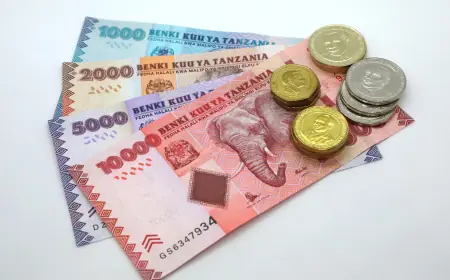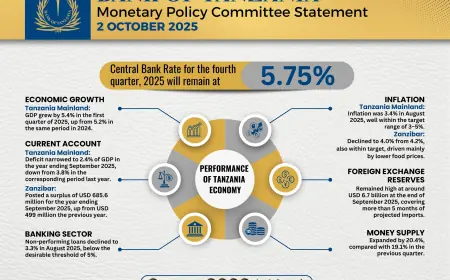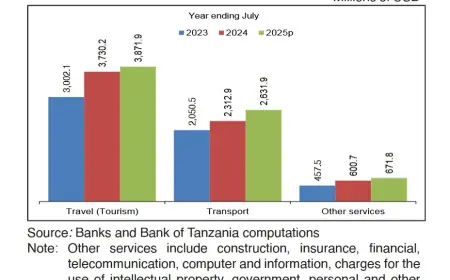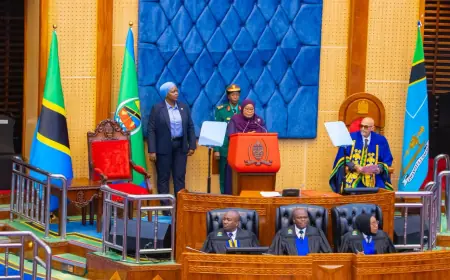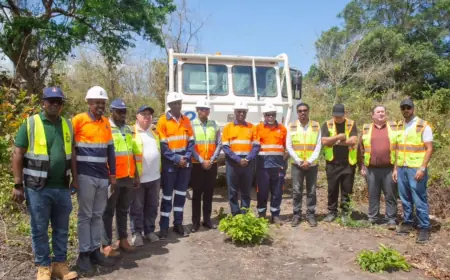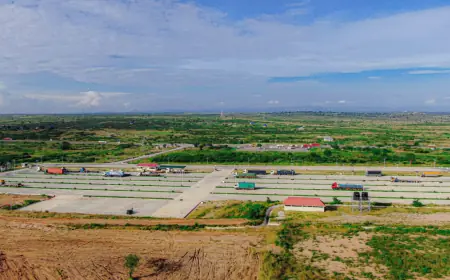TCB launches five year bond to support SME growth, capital market development
The bond, denominated in Tanzanian Shillings, carries an interest rate of 13.5 percent per annum payable quarterly in arrears, and is exempt from withholding tax on coupon payments

Dar es Salaam. Tanzania Commercial Bank PLC (TCB) has officially launched the sale of its Stawi Bond, the first tranche of a five-year Medium Term Note Programme worth Sh150 billion, in a strategic initiative designed to expand financing for small and medium enterprises (SMEs) and strengthen Tanzania’s domestic capital markets.
The launch was attended by the Deputy Permanent Secretary in the Ministry of Finance, Mr Elijah Mwandumbya, alongside senior representatives from the Capital Markets and Securities Authority (CMSA), the Dar es Salaam Stock Exchange (DSE), the Treasury Registrar’s Office, and other key national institutions.
CMSA approved the Information Memorandum for the programme under its mandate in accordance with the Capital Markets and Securities Act, Cap 79 of the Laws of Tanzania, and authorised the issuance of Tranche 1 of the Stawi Bond worth Sh50 billion.
The bond, denominated in Tanzanian Shillings, carries an interest rate of 13.5 percent per annum payable quarterly in arrears, and is exempt from withholding tax on coupon payments.
The issue price is set at par, with a minimum subscription of Sh500,000 and additional subscriptions in multiples of Sh10,000.
The issue date is scheduled for 14 November 2025, with maturity on 14 November 2030, and interest payments falling on 14 February, 14 May, 14 August, and 14 November each year until maturity.
The bond will be listed on the Dar es Salaam Stock Exchange to facilitate trading and investor participation.
Offer timetable
The Stawi Bond offer opened on September 17, 2025 and closes on 17 October 2025.
Allotment will be made on November 13, 2025, with notification and submission of the Stawi Bond register to the Central Securities Depository occurring on 14 November.
The bonds are expected to be uploaded to CDS accounts on November 19, and listed on the DSE on November 21, 2025.
Investors can subscribe by completing application forms available at TCB branches, licensed DSE stockbrokers and dealers, or via the bank’s website, www.tcbbank.co.tz.
CMSA recommends that potential investors seek guidance from financial advisors, accountants, or lawyers before making investment decisions.
Proceeds from the Stawi Bond are intended primarily to finance or refinance SMEs across various sectors.
The programme aims to promote the transformation of informal businesses into formal operations, supporting the adoption of proper accounting and banking systems to ensure compliance with Tanzania Revenue Authority requirements.
It also seeks to facilitate formalisation of land ownership, converting mere sales agreements into legally recognised title deeds, thereby enhancing revenue collection, reducing land-related disputes, and contributing to social stability.
The initiative aligns with the government’s broader agenda to foster inclusive economic growth and strengthen institutional resilience.
The Stawi Bond programme, under the theme Transforming, formalising and growing SMEs from informal to formal sectors for overall economic development of Tanzania, represents TCB’s commitment to driving financial inclusion, improving productive capacity, and supporting sustainable economic development.
The bank emphasises that the bond will strengthen investor confidence while enabling SMEs to access long-term financing and advisory support critical for business growth.
History of TCB: From Postal Bank to Commercial Bank
TCB traces its origins to the Tanganyika Post Office Savings Bank, established in 1925 and operational by 1927 as a government-backed savings institution during British colonial rule.
Following independence, it became part of the Tanzania Posts and Telecommunications Corporation, before being reconstituted as an independent entity under the Tanzania Postal Bank Act No. 11 of 1991.
After the repeal of the 1991 Act, the bank was incorporated under the Companies Act in 2016 and rebranded as TPB Bank PLC in 2017.
Subsequent mergers with Twiga Bancorp, Tanzania Women’s Bank, and TIB Commercial Bank strengthened its capital base and operational efficiency.
On 14 July 2021, reflecting its expanded mandate and modern corporate identity, it adopted the name Tanzania Commercial Bank PLC.
Headquartered in Dar es Salaam, TCB has total assets of approximately Sh1.9 trillion, a workforce of around 1,100 employees, and a growing nationwide customer base.
The bank reported a net profit of Sh31.6 billion in 2024, reflecting operational resilience and strategic focus on retail and SME lending, digital banking expansion, and risk management.
Risks
Operating predominantly in Tanzania exposes TCB to country-specific risks, including currency volatility, inflation, fiscal deficits, reliance on commodities, and potential social or political disruptions.
The Tanzanian shilling has faced depreciation pressures, with a 5.6 percent decline against the US dollar in 2023, while inflation reached 4.8 percent, potentially increasing borrowing costs.
Public debt stood at 49.6 percent of GDP in 2022/2023, raising the prospect of higher domestic borrowing costs and constrained credit availability.
The economy’s reliance on commodities such as gold, agricultural produce, and tourism makes it vulnerable to external shocks, including price volatility, droughts, and climate events, which could impact SME performance and bond repayments.
To mitigate these risks, TCB maintains a diversified funding base including foreign currency facilities, matches assets and liabilities to manage exchange rate exposure, and actively monitors inflation trends to adjust pricing and lending strategies.
The bank’s Asset and Liability Committee conducts regular stress testing to ensure the capacity to service bond obligations, while risk management frameworks maintain financial stability under varying macroeconomic conditions.
Officials at the launch described the Stawi Bond as a transformative investment opportunity, encouraging members of the public to participate.
They underscored that the initiative not only diversifies investment options in Tanzania but also contributes to strengthening SMEs, fostering formalisation, enhancing financial inclusion, and supporting the country’s broader economic development objectives.
What's Your Reaction?
 Like
0
Like
0
 Dislike
0
Dislike
0
 Love
0
Love
0
 Funny
0
Funny
0
 Angry
0
Angry
0
 Sad
0
Sad
0
 Wow
0
Wow
0
























